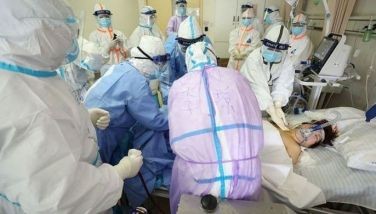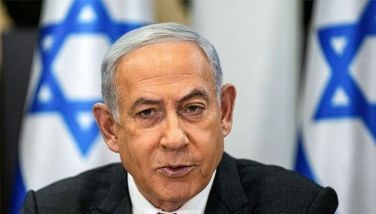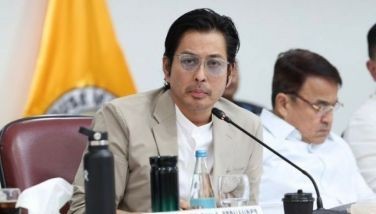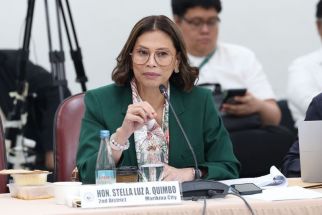Leading NGOs blast UN over virus pandemic inaction
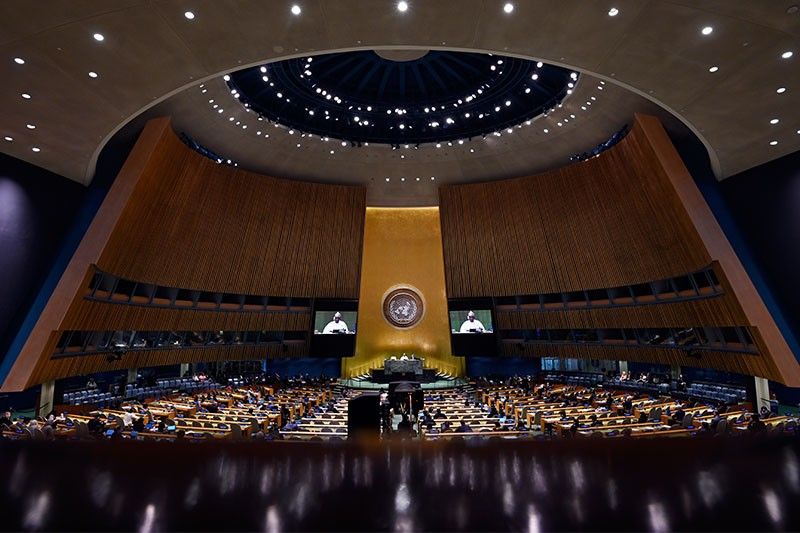
UNITED NATIONS, United States — Leading non-governmental organizations on Tuesday blasted the UN Security Council's "shameful" inaction towards the COVID-19 crisis, especially over a call for truces in some conflict zones during the pandemic.
United Nations Secretary General Antonio Guterres called for ceasefires in fighting around the world two months ago.
But the Security Council — debilitated by a confrontation between China and the United States — has failed to agree on a resolution supporting the initiative in the conflicts which fall under its mandate, the NGOs said in a statement.
"The paralysis of the Security Council in the face of COVID is shameful. To millions of people, it is also incomprehensible," said David Miliband, CEO of the International Rescue Committee.
For Rob Malley, president and CEO of the International Crisis Group, Washington and Beijing "have treated these negotiations as an opportunity for a blame-game over the origins of COVID-19 rather than an opening to make a straightforward call for a reduction in violence during the pandemic."
Neither country "seems able or willing to show leadership at the UN during a global crisis," Malley said.
Inger Ashing, CEO of Save the Children, said the Security Council "has a historic opportunity to stop the fighting globally and to ensure aid workers have full access to those most in need."
Security Council negotiations have been at an impasse since May 8, when Washington rejected compromise text proposed by France and Tunisia which would urge a halt to fighting in countries like Afghanistan and Yemen.
The United States is rejecting any mention of the World Health Organization in the resolution, while China has threatened to veto any resolution that does not reference the WHO.
Guterres's wider call has the support of 200 NGOs and individually some 140 countries of the 193 UN members.
Unlike the Security Council, the UN General Assembly has adopted two pandemic-related resolutions, one on April 3 aimed at strengthening international cooperation and the other on April 20 to call for equal access to any future vaccines.
Follow this page for updates on a mysterious pneumonia outbreak that has struck dozens of people in China.
New Zealand Prime Minister Chris Hipkins says on Sunday that he had contracted COVID-19, testing positive at a key point in his flailing campaign for re-election.
Hipkins saYS on his official social media feed that he would need to isolate for up to five days -- less than two weeks before his country's general election.
The leader of the centre-left Labour Party said he started to experience cold symptoms on Saturday and had cancelled most of his weekend engagements. — AFP
The World Health Organization and US health authorities say Friday they are closely monitoring a new variant of COVID-19, although the potential impact of BA.2.86 is currently unknown.
The WHO classified the new variant as one under surveillance "due to the large number (more than 30) of spike gene mutations it carries", it wrote in a bulletin about the pandemic late Thursday.
So far, the variant has only been detected in Israel, Denmark and the United States. — AFP
The World Health Organization says on Friday that the number of new COVID-19 cases reported worldwide rose by 80% in the last month, days after designating a new "variant of interest".
The WHO declared in May that Covid is no longer a global health emergency, but has warned that the virus will continue to circulate and mutate, causing occasional spikes in infections, hospitalisations and deaths.
In its weekly update, the UN agency said that nations reported nearly 1.5 million new cases from July 10 to August 6, an 80% increase compared to the previous 28 days. — AFP
The head of US intelligence says that there was no evidence that the COVID-19 virus was created in the Chinese government's Wuhan research lab.
In a declassified report, the Office of the Director of National Intelligence (ODNI) says they had no information backing recent claims that three scientists at the lab were some of the very first infected with COVID-19 and may have created the virus themselves.
Drawing on intelligence collected by various member agencies of the US intelligence community (IC), the ODNI report says some scientists at the Wuhan lab had done genetic engineering of coronaviruses similar to COVID-19. — AFP
Boris Johnson deliberately misled MPs over Covid lockdown-breaking parties in Downing Street when he was prime minister, a UK parliament committee ruled on Thursday.
The cross-party Privileges Committee said Johnson, 58, would have been suspended as an MP for 90 days for "repeated contempts (of parliament) and for seeking to undermine the parliamentary process".
But he avoided any formal sanction by his peers in the House of Commons by resigning as an MP last week.
In his resignation statement last Friday, Johnson pre-empted publication of the committee's conclusions, claiming a political stitch-up, even though the body has a majority from his own party.
He was unrepentant again on Thursday, accusing the committee of being "anti-democratic... to bring about what is intended to be the final knife-thrust in a protracted political assassination".
Calling it "beneath contempt", he said it was "for the people of this to decide who sits in parliament, not Harriet Harman", the veteran opposition Labour MP who chaired the seven-person committee. — AFP
- Latest
- Trending




























